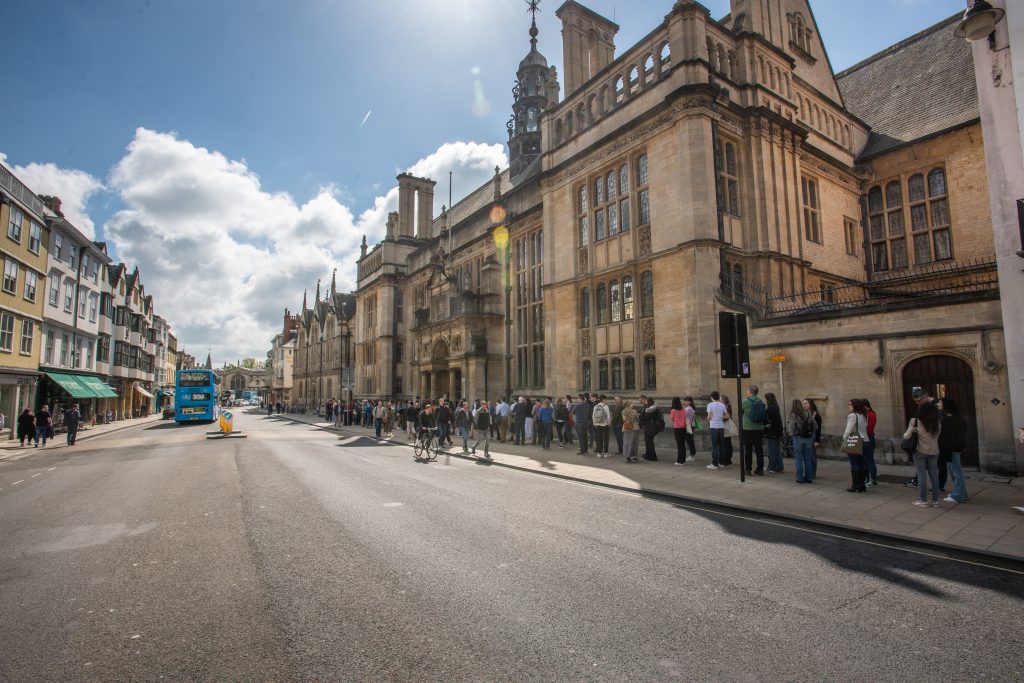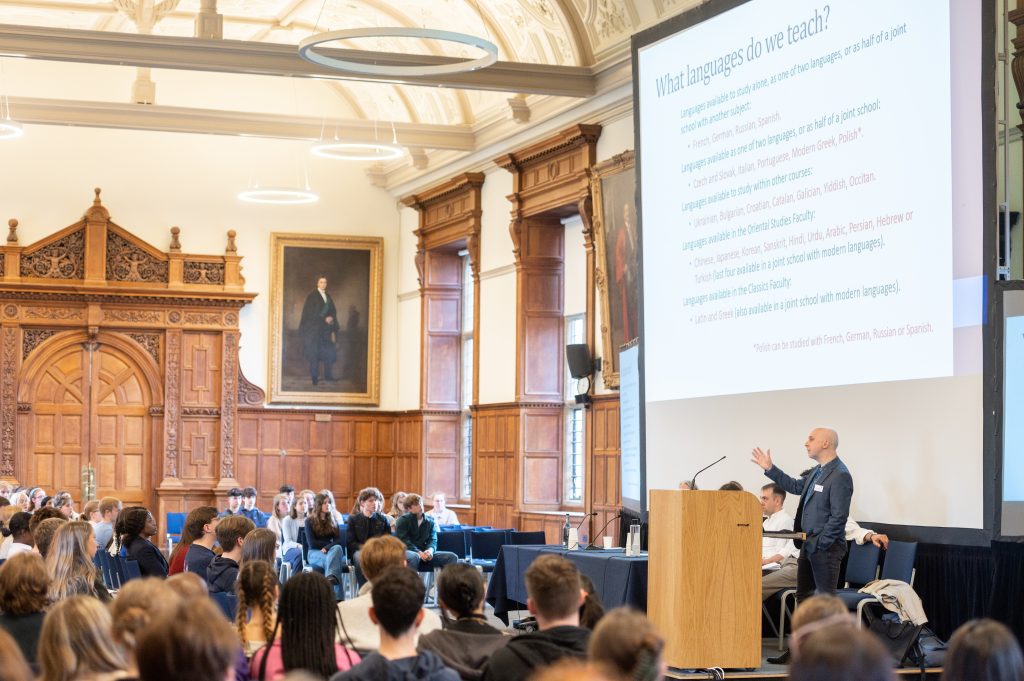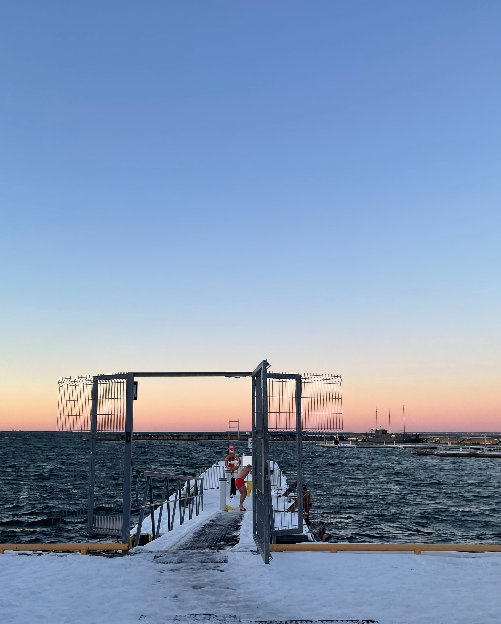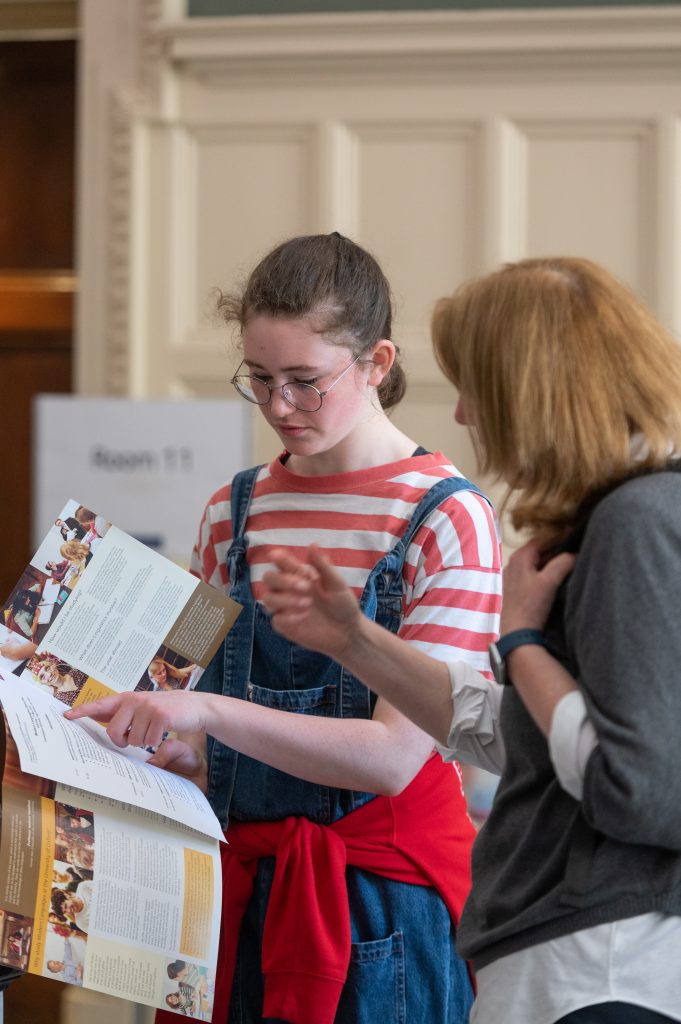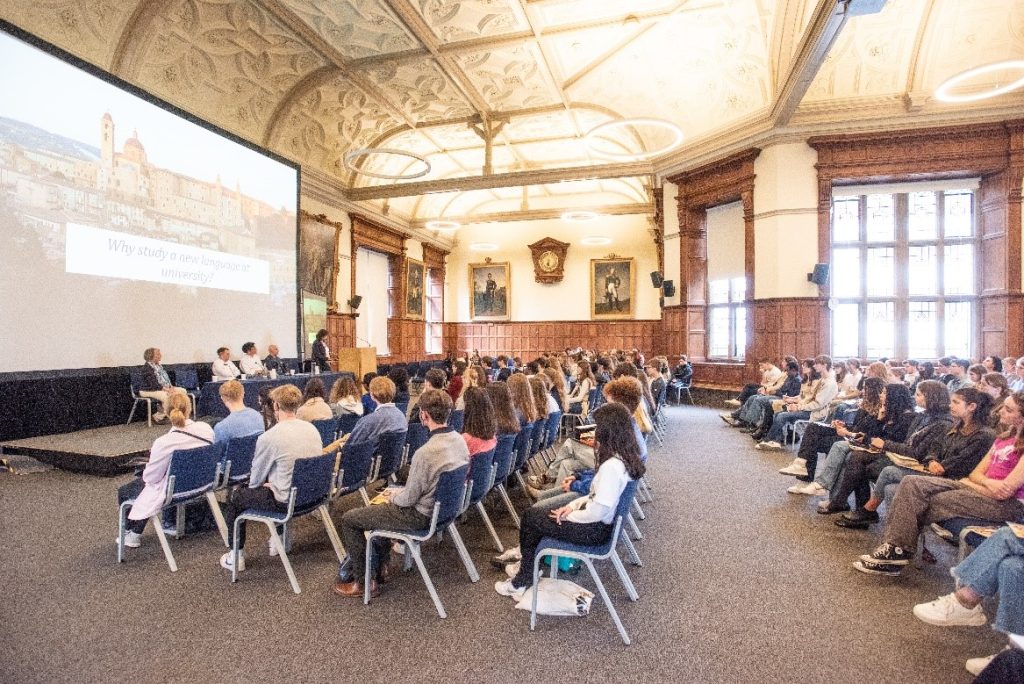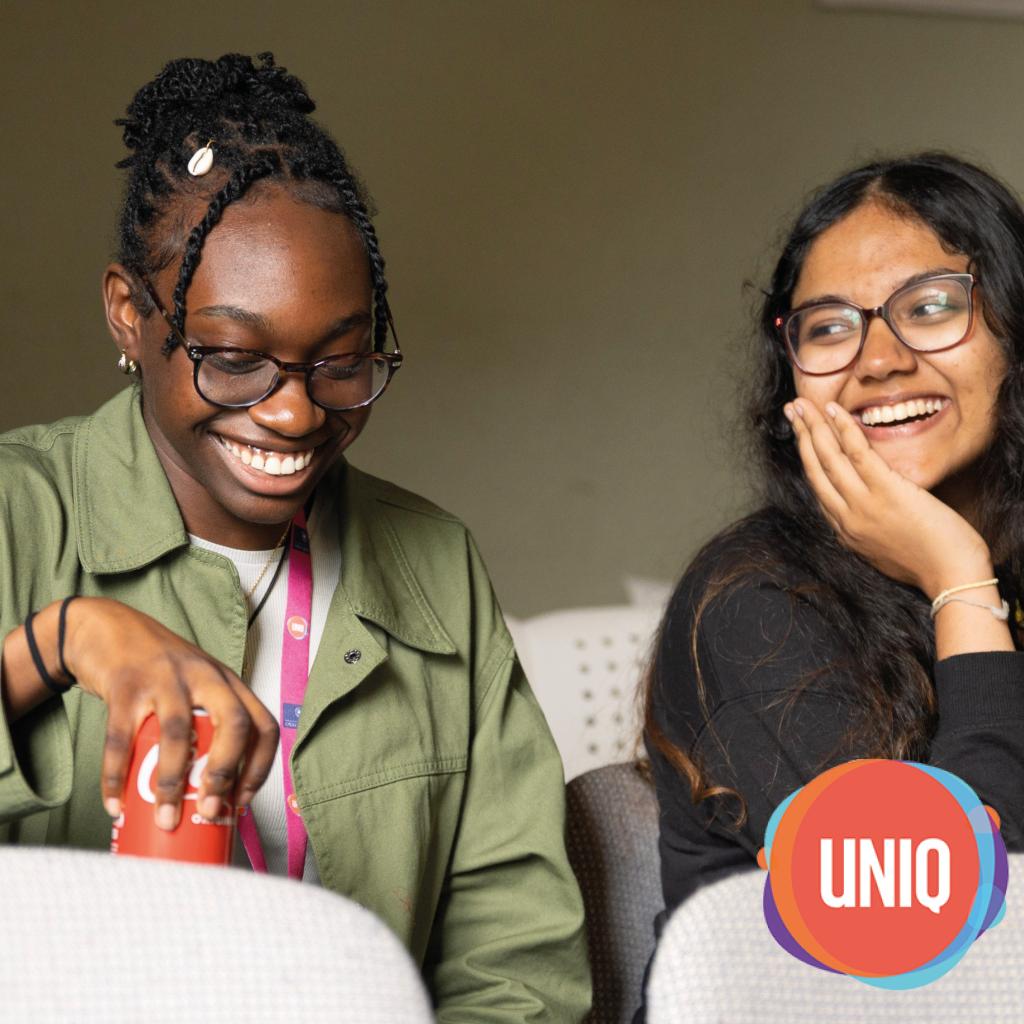Following a successful four-year run, Oxford’s University College, Magdalen College, and the Faculties of History and Modern Languages are delighted to announce that the virtual BAME Humanities Study Day will return for 2024 on Thursday 4th April!
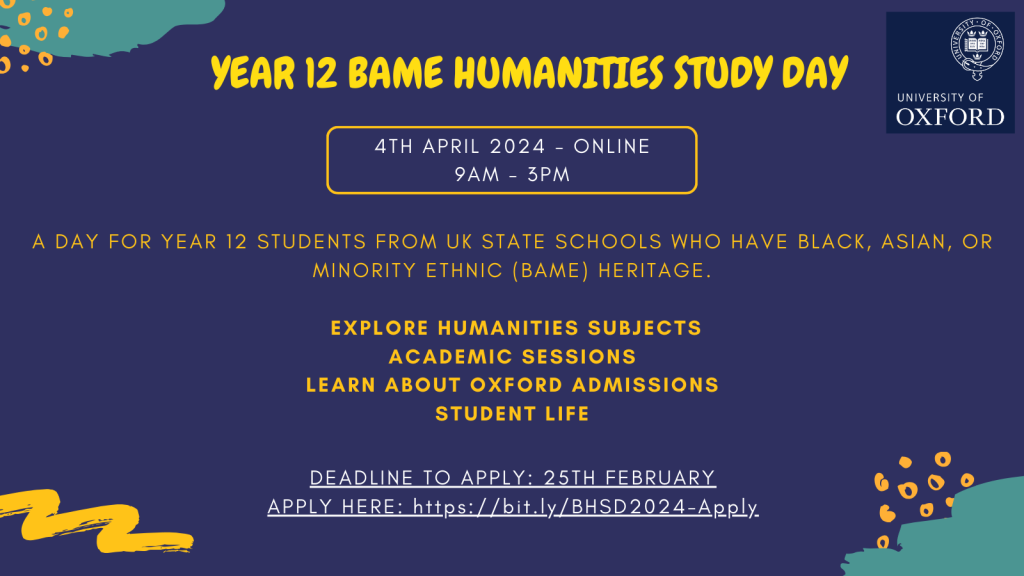
This event offers UK state school students with Black, Asian or Minority Ethnic (BAME) heritage an exciting opportunity to engage with academic taster sessions from across the Humanities subjects, and also to access insight into Oxford student life and support with the admissions process.
This year, the day will open with a welcome and an introduction to the humanities subjects from current students followed by the opportunity to attend two humanities subject lectures. Students will learn more about the Oxford application process in our subject-specific admissions workshops. The day will conclude with a live student life Q&A where you will have the opportunity to ask your questions to current Oxford students from BAME backgrounds.
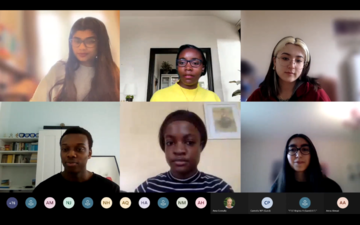
For the academic lectures, students will be able to choose from the following subjects: Classics, English, History, History of Art, Modern Languages, Music, Asian and Middle Eastern Studies, Music, Philosophy or Theology. You will be able to specify your preferred subjects on the event’s application form below.
Last year, students chose to attend academic taster lectures on fascinating topics such as:
- Myths and Counter-Myths: Roman Imperialism and French Colonialism in North Africa (Classics)
- Orientalist painting and how to write it (Medieval & Modern Languages)
- Popular Music: History and Interpretation (Music)
- The Shock of the Nude: Art, Science, and the Racial Imaginary in Modern China (History of Art)
- The Spirituality of Black Lives Matter: The Enduring Truth of Black Liberation theology (Theology)
- Mathematics, Magic and Mongols: the forces that shaped medieval Islamic astronomy (History)

Before attending the subject day, I had no prior ideas about attending Oxford, nor was I really interested. This was mostly because I thought Oxford was an unreachable place for someone like me, a coloured girl who does not come from a highly prestigious background, which I believed Oxford to be the opposite. Attending the study day made me realise Oxford is actually a very accessible and open place for someone of my background…
– 2023 Study Day participant
Eligibility Criteria
Students must be…
- Currently in Year 12 (or equivalent)
- Identifying as having Black, Asian, or Minority Ethnic (BAME) Heritage
- Attending a UK state school (unless you have extenuating circumstances or meet several of the priority criteria listed below)
- If spaces are limited, priority will be given to students who meet one or more of the following: first generation in your family to attend university, have experience of being in care, are a young carer, are eligible for Free School Meals/Pupil Premium, are from an area of deprivation or area with a low rate of progression to university.
To sign up, complete this application form. If you are unable to attend live on the 4th April but would like access to the recordings and resources, then please still submit an application via the form.
Applications will close on 25th February 2024. We cannot guarantee every applicant a place but are aiming to accommodate a large number of students.
If you have any questions about this event, please email us at outreach@magd.ox.ac.uk.

